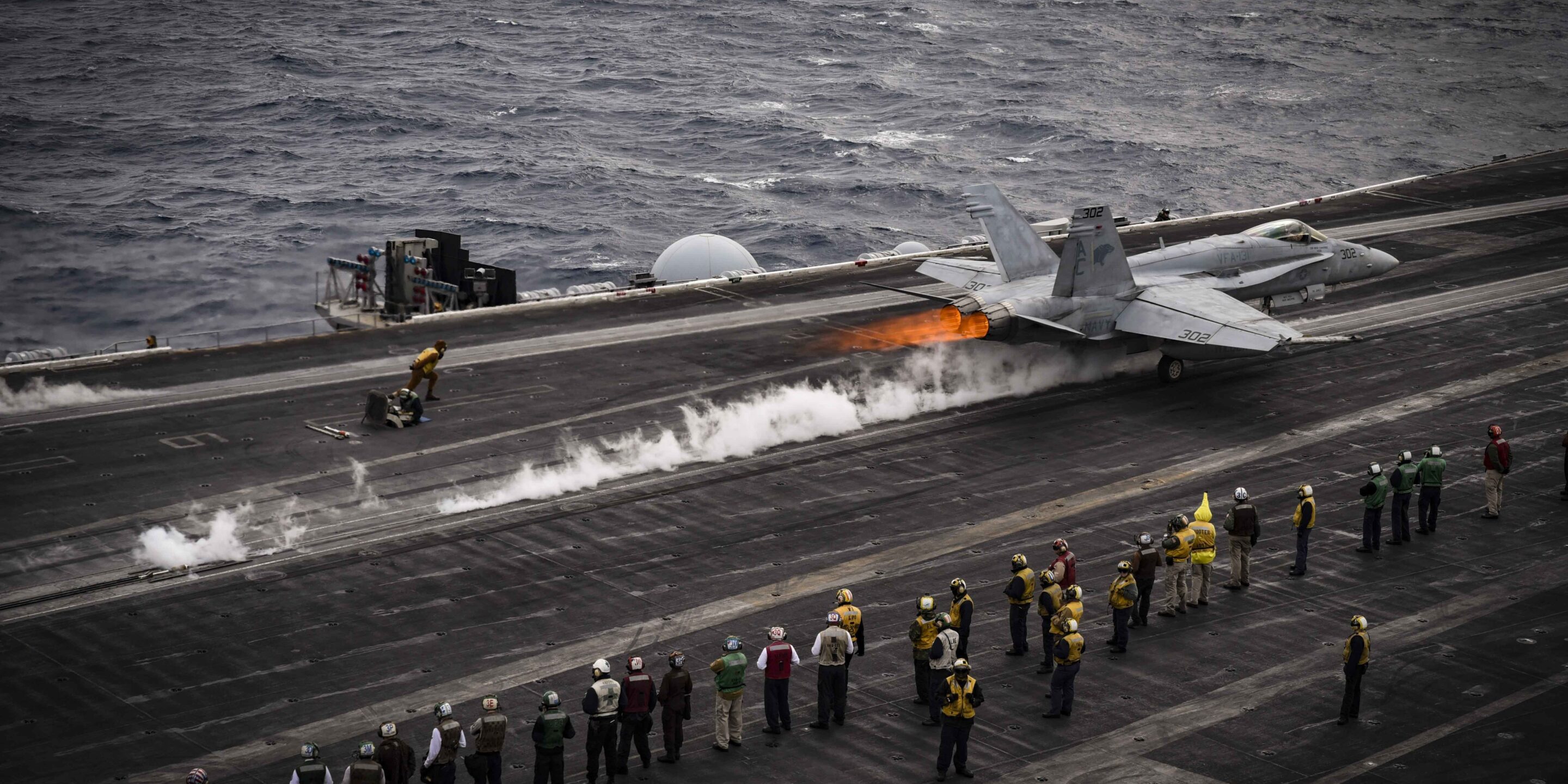April 13, 2024
Why Iran’s unprecedented strike on Israel could start an escalation spiral

Iranian retaliation against Israel was inevitable the moment Israeli aircraft bombed an Iranian diplomatic facility in the heart of Damascus on April 1, killing one of the Islamic Revolutionary Guard Corps’ (IRGC) top generals and several other Iranian military advisers in the process.
Iran’s political and religious leadership telegraphed as much immediately after the Israeli strike occurred. Iranian President Ebrahim Raisi called it a “cowardly crime” that wouldn’t go unanswered. Iran’s supreme leader, Ayatollah Ali Khamenei, used his weekly speech to declare that Israel would be “punished.” The Biden administration took Khamenei’s words seriously: U.S. government employees in Israel were ordered to stay in the major cities; Secretary of State Antony Blinken spoke with his Arab foreign ministerial colleagues and asked them to urge Iran to de-escalate; and the Defense Department repositioned two U.S. Navy destroyers into regional waters, at least one of which carries a sophisticated missile defense system.
The question was never whether Iran would respond but rather how. Now we know: At the time of writing, over 100 drones and missiles were launched by Iran toward Israel. Further drone or even ballistic missile strikes by the Iranians could follow, although this is hardly assured. Either way, a tense regional situation is becoming even more fraught. The leaders of Israel and the U.S. must now weigh the risks and rewards of an Israeli counterstrike. And if counterstrikes are approved, the leaders of both countries will need to determine how long they will tolerate a dangerous escalatory spiral.
More on Middle East

November 4, 2025

November 4, 2025
Events on Iran







